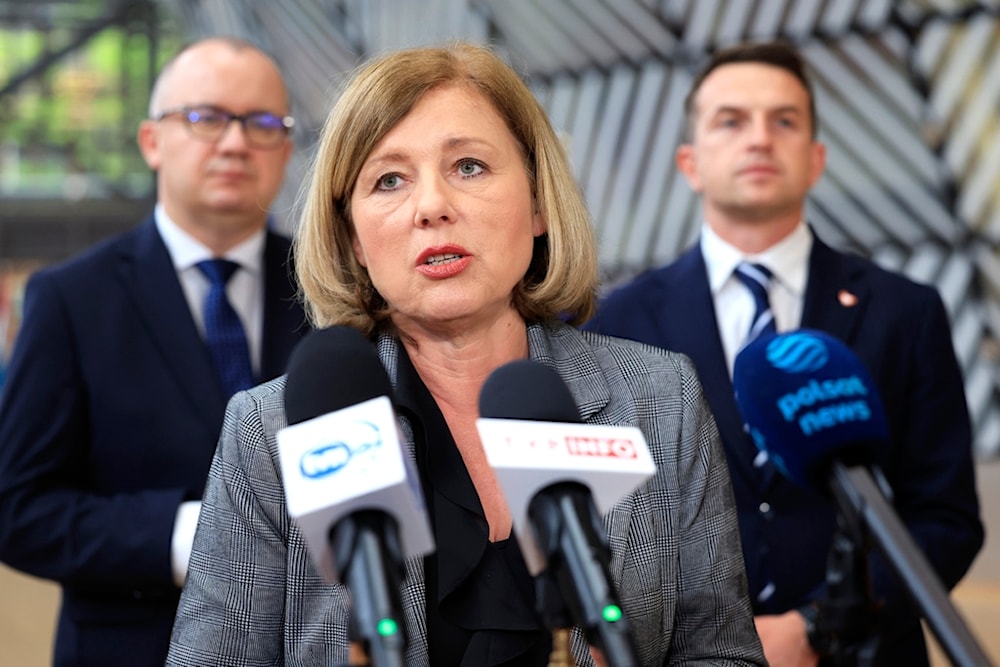EU makes about-face, now denying major Russian meddling in elections
But EU Commissioner Vera Jourova repeated allegations that "Kremlin propaganda and other malicious actors" continue to pose a threat to the bloc.
-

European Commissioner for Values and Transparency Vera Jourova speaks after a meeting of the General Affairs Council at the European Council building in Brussels, Tuesday, May 21, 2024. (AP)
Brussels did not detect any significant instances of interference in the June 2024 European Parliament elections, EU Commissioner Vera Jourova acknowledged, despite the bloc's previous claims of Russian meddling and threats of sanctions against Moscow.
In May, the European Parliament had labeled Russia as the primary source of "foreign interference and disinformation" within the EU, calling for increased sanctions and stricter censorship.
As Vice President for Values and Transparency at the European Commission, Jourova was responsible for ensuring the integrity of the elections against alleged external influence.
“Based on currently available information, no major information interference operation capable of disrupting the elections was recorded,” she confirmed in her October 10 report on the elections, a statement she reiterated to reporters on Tuesday following a General Affairs Council meeting in Luxembourg.
However, Jourova repeated allegations that "Kremlin propaganda and other malicious actors" continue to pose a threat to the EU through the spread of "disinformation," artificial intelligence (AI), and cyber-attacks.
She cited claims from EU fact-checkers that there had been a surge in disinformation roughly two weeks before the elections.
The EU Commissioner mentioned that these circulated narratives focused on “topics that trigger a strong emotional impact – the war in Ukraine and the Middle East, false narratives on climate change, and migrants.”
Borrell calling for sanctions for 'election meddling'
Jourova further accused Russia of orchestrating the "Doppelganger" network of fake websites, which mimic legitimate media outlets, and of deploying social media bots.
She claimed that AI had been used by the alleged meddlers to spellcheck their texts and generate fake comments on their articles.
Non-governmental organizations tasked with monitoring violations flagged only 130 instances of "unlabeled" artificially generated content, mostly consisting of "cheap fakes" and "shallow fakes" that were not deemed significant enough to cast doubt on the election results.
Jourova’s report follows EU foreign policy chief Josep Borrell’s recent proposal for a new sanctions framework targeting Russia, accusing Moscow of engaging in “fake news, election destabilization, and cyber warfare” aimed at "undermining the values, security, independence, and integrity of the EU and its member states."
He also accused Russia of conducting a “hybrid campaign” designed to “divide our society, destabilize and weaken the EU,” and erode support for Ukraine.
Meanwhile, Moscow has consistently denied allegations of election interference, asserting it has no interest in the EU’s internal affairs.
Read more: Russia says Nord Stream investigators misleading probe, US deflects

 3 Min Read
3 Min Read









